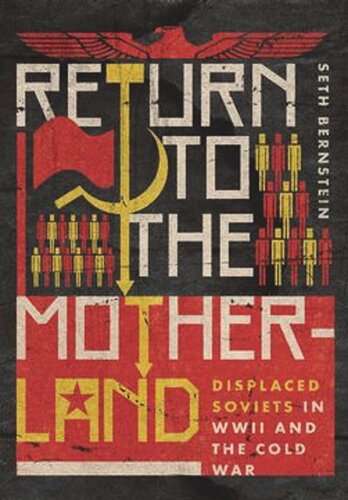

Most ebook files are in PDF format, so you can easily read them using various software such as Foxit Reader or directly on the Google Chrome browser.
Some ebook files are released by publishers in other formats such as .awz, .mobi, .epub, .fb2, etc. You may need to install specific software to read these formats on mobile/PC, such as Calibre.
Please read the tutorial at this link: https://ebookbell.com/faq
We offer FREE conversion to the popular formats you request; however, this may take some time. Therefore, right after payment, please email us, and we will try to provide the service as quickly as possible.
For some exceptional file formats or broken links (if any), please refrain from opening any disputes. Instead, email us first, and we will try to assist within a maximum of 6 hours.
EbookBell Team

5.0
78 reviewsReturn to the Motherland follows those who were displaced to the Third Reich back to the Soviet Union after the victory over Germany. At the end of World War II, millions of people from Soviet lands were living as refugees outside the borders of the USSR. Most had been forced laborers and prisoners of war, deported to the Third Reich to work as racial inferiors in a crushing environment.
Seth Bernstein reveals the secret history of repatriation, the details of the journey, and how the tumult of war created new identities, prospects, and dangers for migrants. He uses official and personal sources from declassified holdings in post-Soviet archives, more than one hundred oral history interviews, and transnational archival material. Most notably, he makes extensive use of secret police files declassified only after the Maidan Revolution in Ukraine in 2014.
The stories described in Return to the Motherland reveal not only how the USSR grappled with the aftermath of war, but also the universality of Stalinism's refugee crisis. While arrest was not guaranteed, persecution was ubiquitous. Within Soviet society, returnees met with a cold reception that demanded hard labor as payment for perceived disloyalty, soldiers perpetrated rape against returning Soviet women, and ordinary people avoided contact with repatriates, fearing arrest as traitors and spies. As Bernstein describes, Soviet displacement presented a challenge to social order and the opportunity to rebuild the country as a great power after a devastating war.